Author Interview: Zachary Zane
Author Zachary Zane opens up about bisexuality, OCD, and “powdered” courage
Hey, y’all! Welcome to this members-only edition of Beyond Liquid Courage. In addition to my free weekly column, where I answer subscriber questions about alcohol-free dating, intimacy, and relationships, these bonus issues dive deeper into my life as a writer and provide resources to support you on your dry humping journey (wink wink).
But first: I’m co-hosting a sober pride event in Brooklyn this Sunday, June 11th! Grab your ticket here.
Zachary Zane, bisexual icon (bicon) and author of Boyslut: A Memoir and Manifesto. A big part of my research on liquid courage is interviewing non-sober folks and those who identify as sober or in recovery. We’re all impacted by how society expects us to drink socially, especially when it comes to relying on alcohol-induced courage in the bedroom and on dates.
It takes a lot to make a sex columnist feel like a “Charlotte,” but Zane’s work does just that. He goes there—and it’s not just for the tasty thirst traps! His work helps to destigmatize queer sex, bisexuality, OCD, kink, and so much more. I appreciate Zaddy Zane (the term of endearment I frequently use for him) for many reasons, but mostly because we have the same goal in our writing: destigmatizing the taboo.
While my work aims to destigmatize alcohol-free life and sexuality, his work gives language and visibility to being an out-and-proud, bisexual man who’s not just “going through a phase.”
Let’s dive in!
Your book refers to your Liquid Courage Era, a time when “you needed to get hammered to talk to potential hookups.” Can you tell us a bit more about that time?
Initially, I needed liquid courage to explore my bisexuality (i.e., hook up with men). I was just way too nervous to do anything sober, and I was in such denial. Getting hammered gave me an excuse. I could tell myself I wasn't queer; I was just drunk and horny.
But then I became dependent on it. I was unable to hook up unless I was blackout drunk, and that's an issue. Not to mention the hookups aren't usually great because, well, I was sloshed. The first time I hooked up with a man, he was going down on me, and I had to run to the bathroom to vomit in the middle of it… twice. That isn't a fun experience!
How did you graduate from your Liquid Courage Era? What do you do now when you need a boost of courage and you don't want to drink?
Coming out as bisexual allowed me to graduate from that era. I drank to have an "excuse" for my same-sex behaviors. I could tell myself I wasn't bi, I was just really drunk. Once I embraced the label (with the help of a therapist) I was able to explore my same-sex behaviors without alcohol. It also really helped to have a male partner who I trusted.
Those of us in the LGBTQIA+ community are more likely to experience substance use disorder at higher rates than cisgender, straight folks. What advice would you give to someone who’s still in their Liquid Courage Era?
Often, the tendency to use alcohol/drugs in order to hook up comes from a place of anxiety, shame, and fear of rejection. I think it's helpful to try to figure out the specific why here. Why do you feel compelled to use alcohol? I think if you can get to the root of your insecurities, shame, etc., you can more accurately address them. This could then lead to you not needing substances for intimacy and sex.
Initially, I actually thought I wasn't into men because I had these awful hammered hookups. But the issue was that I was hammered. Hammered hookups aren't fun or pleasurable!
Your book mentions the role that sexual shame plays for queer folks who struggle with substance abuse. Can you elaborate on that?
Shame impedes you from acting on your desires. Drugs and alcohol, however, lower your inhibitions, often allowing you to act on sexual desires that you're too afraid to do while sober. But if you can remove the shame [from your sexual desire], you won't need to rely on drugs and alcohol as a crutch.
I’m obsessed with the term “Powdered” Courage that you describe in your chapter, Cocaine Turned Me Bisexual. What role did cocaine serve in your queer sexual awakening, and how did you realize you no longer need “Powdered” Courage to fully embrace your bisexuality?
There's a bit of an irony here. Initially, I felt I needed cocaine in order to lower my inhibitions so I could act on my desires. I was in denial and too afraid to have sex with men while sober. So Powdered Courage gave me that push to have sex with a man. But then, the issue becomes that you become reliant on it. I did for a while until I got into therapy.
But if you can remove the shame [from your sexual desire], you won't need to rely on drugs and alcohol as a crutch.
While this column encourages readers to move Beyond Liquid Courage, it also aims to destigmatize mental health. You talk a lot about OCD (Obsessive Compulsive Disorder) in your book. How does OCD show up in your sex life?
The fixation on my sexuality (whether I was gay, straight, or bi) manifested similarly to my other mental obsessions. It also made hooking up with guys so complicated. I was so FIXATED on my sexuality that I couldn't actually be present in the moment and enjoy the hook-up.
What are some common misunderstandings about OCD that you’d like to clear up for my readers?
People don't realize the various ways OCD can manifest symptomatically. I think they assume people with OCD are hypochondriacs or "neat freaks." That wasn't me. For example, one of my biggest compulsions was checking my alarm clock to make sure it was on. I'd check over 100 times a night to make sure it was on, which meant I hardly slept, which in turn, made everything worse. I also knew that I shouldn't be repeatedly rechecking, which led to self-loathing. I didn't just feel that my brain was broken, but that I was broken.
For many, including yourself, labeling their sexuality is important. What advice would you give to someone who's sober or sober curious and wants to explore their sexuality and/or gender identity?
Find other sober folks to explore with. There are SO many queer sober folks. If you're on the apps, I'd list in your bio that you're sober. That will help attract other sober queers. But then going to queer sober meet-ups and the like.
Any tips for someone who struggles with the "constant coming out" aspect of being queer? (Context for cis, straight readers: Being anything other than cisgender and straight usually means a lifetime of informing people that you’re not those things.)
Not to sound corny, but it does get easier. Eventually, you find your queer community. Your friends and chosen family know you're queer, and you'll also find yourself in more queer spaces where the assumption is that you're queer. Also, you don't always need to come out. I feel like many queers feel the need to correct people when they're mislabeled as straight (or gay). Of course, you can, but if it's a stranger or someone you're never going to see again, you don't have to.*
*Tawny’s note: You never have to come out, but I want to acknowledge that the majority of the American workforce has bosses and coworkers they have to deal with on a daily basis—unlike Zachary and I, who work for ourselves and, therefore can be as open or as closed as we want. For guidance on how to come out at work (if you want), the Human Rights Campaign has this handy guide on what to ask yourself before coming out and how to proceed.
As Zaddy Zane says, life gets easier when we learn about ourselves and remove shame from our sexualities. Whether you’re sober, sober curious, a Boy Slut, a virgin, or somewhere in between, I hope this interview reminds you that you don’t need liquid courage (or powdered courage!) to embrace the real you.
Until next time,
P.S. This issue was edited by Irina Gonzalez.


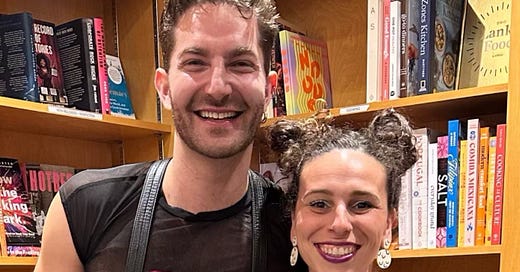



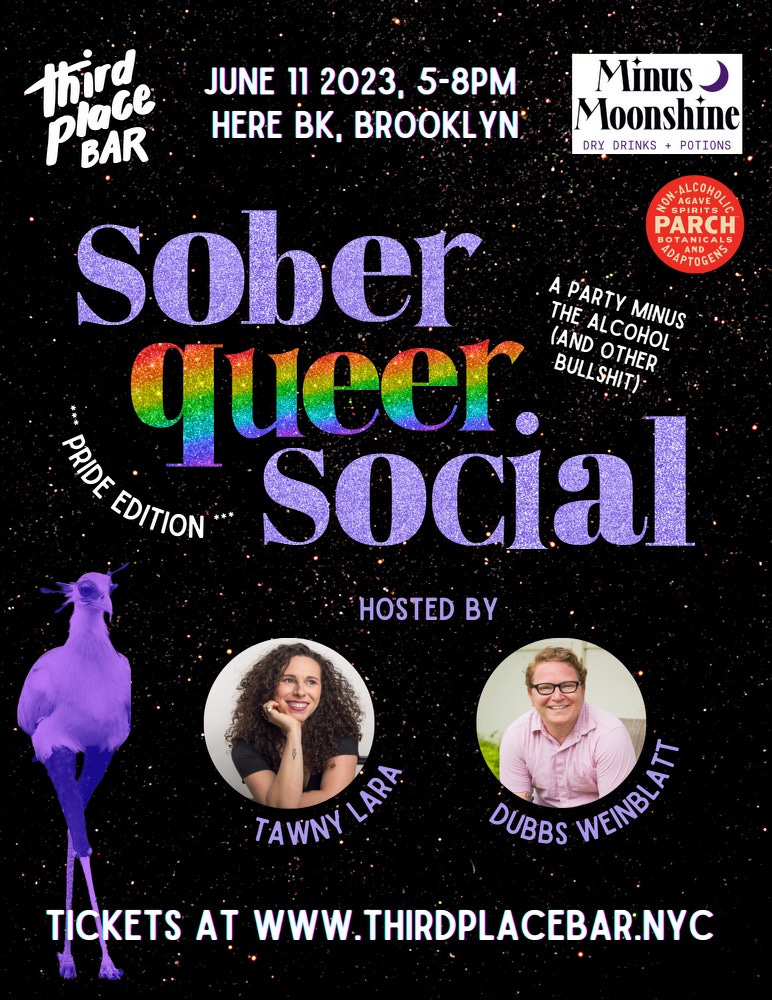
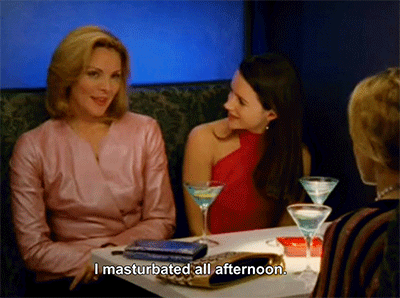
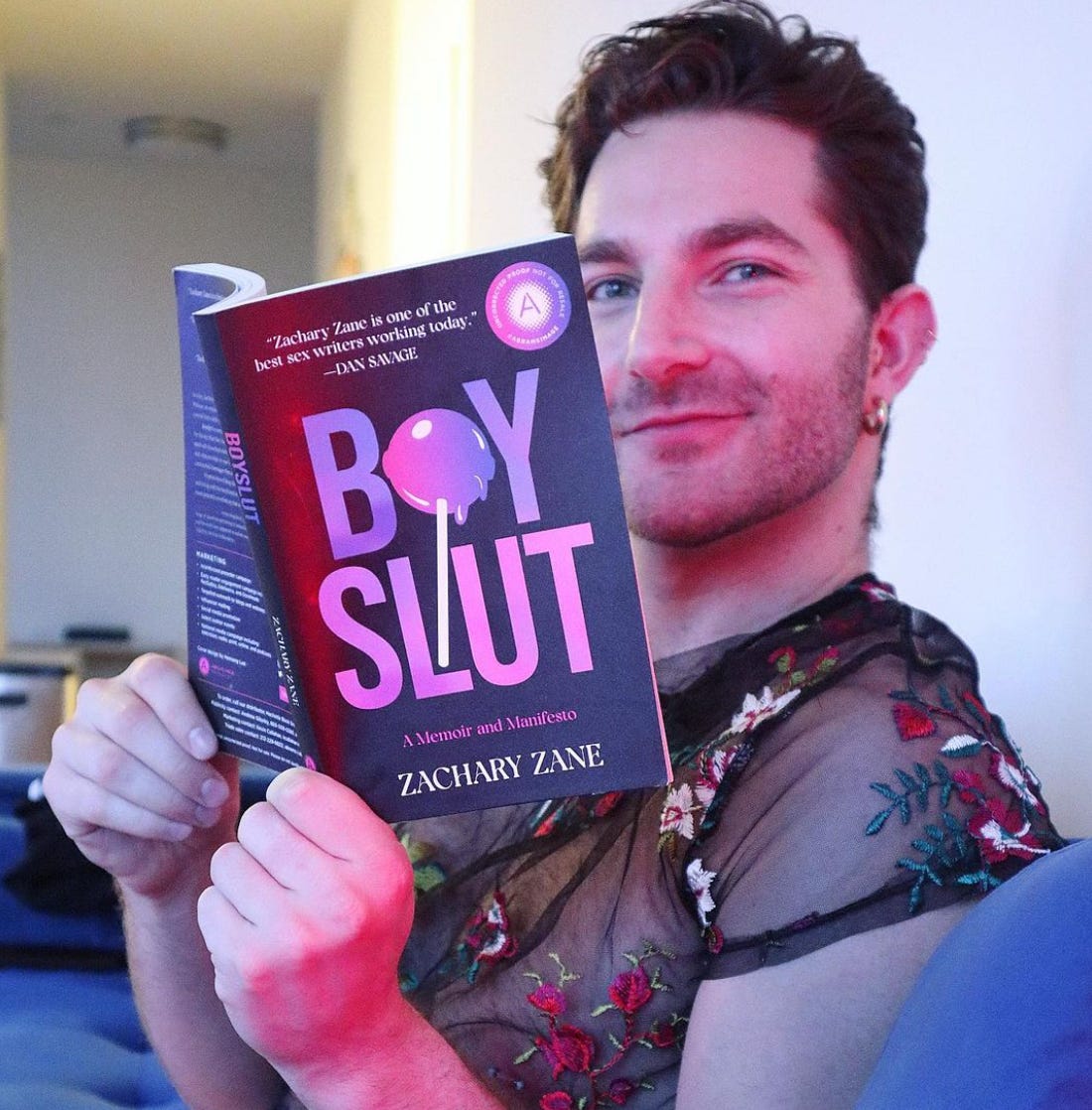
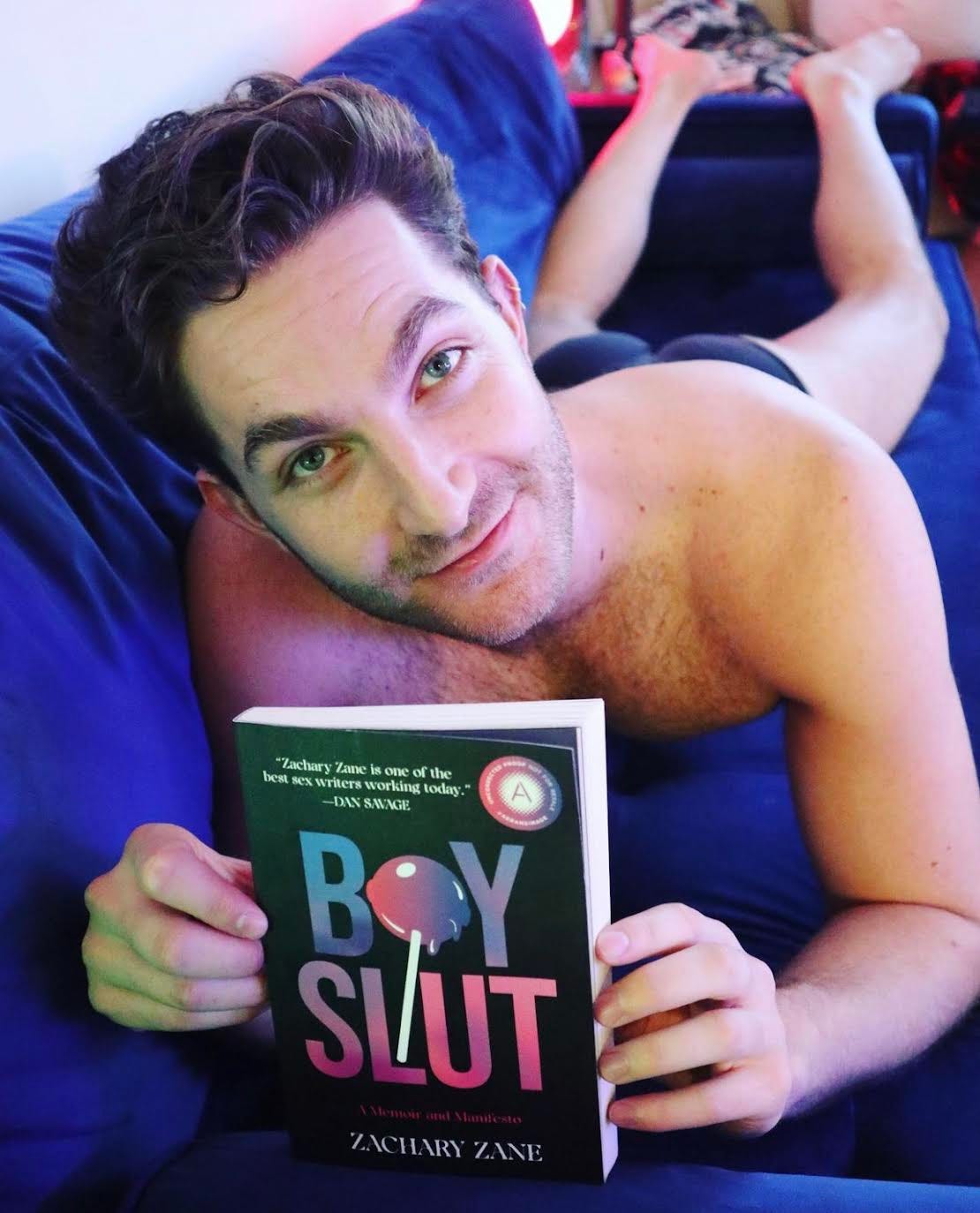
Thank you for this great interview!! xoxoxo ZZ